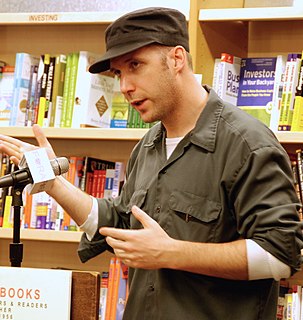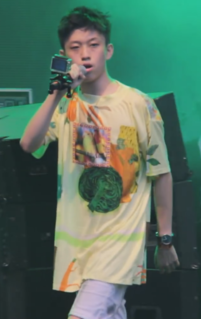A Quote by Lee Unkrich
I'd like to drill in a little more detail into one aspect of cutting which is particularly close to me and that's dialogue editing. It is a vital part of editing especially in animated film, but in the end it is usually completely transparent to the audience. The vocal performances are reported for over several years and the actors are very rarely in recording studios together. That's why the editor has got to all these different performances and edit them together to create the illusion of spontaneity and real action.
Quote Topics
Action
Actors
Animated
Aspect
Audience
Close
Create
Cutting
Detail
Dialogue
Different
Drill
Edit
Editing
Editor
End
Film
Got
Illusion
In The End
Like
Little
Me
More
Over
Part
Particularly
Performances
Rarely
Real
Recording
Recording Studio
Reported
Several
Spontaneity
Studios
Them
Together
Transparent
Very
Vital
Vocal
Which
Why
Years
Related Quotes
[ Digital revolution ] only has allowed me to work faster, editing digitally, which I'm doing right now, a film on volcanoes. I can edit almost as fast as I'm thinking, editing with celluloid means always searching for this little reel of film, and number it, and scribble on it with some sort of pens, and gluing it together, and working on a flatbed. It's much, much slower.
Performance is made in the editing room, and I've come to see the truth in that - the idea that they say performances are usually made in the editing room because what you film is the raw material. I think just going through the process of saying, "Which take do we use? Why is that the take we want? I want that take can you edit again, I'm not sure that's the one, I think it's this one." And just because you go through that process, I think somehow it's made me sort of more open about the [actor's] possibilities.
In the very beginning, women were editors because they were the people in the lab rolling the film before there was editing. Then when people like D. W. Griffith began editing, they needed the women from the lab to come and splice the film together. Cecil B. DeMille's editor was a woman. Then, when it became a more lucrative job, men moved into it.
In live-action, writing, production, and editing happen in discrete stages. In animation, they overlap - happening simultaneously. This allows a real dialogue to occur between the writer, the director, the actors, and the editor, and it makes the writing process a lot more collaborative and a lot less lonely.
In live-action, writing, production and editing happen in discrete stages. In animation, they overlap - happening simultaneously. This allows a real dialogue to occur between the writer, the director, the actors and the editor, and it makes the writing process a lot more collaborative and a lot less lonely.
As soon as you're finished shooting, you have to go into the edit room and choose all of the shots that you're going to commit to because the visual effects vendor has to get it because they'll spend months on it. So, you're editing out of sequence before you've gotten a film for the movie and the performances.
There were a lot of unique challenges in producing the film, such as the logistical issues inherent in producing a long-term verite film in Pakistan, dealing with Urdu and Punjabi dialogue with an English-speaking editor and all the difficulties in recording, editing and clearing so many music tracks.
Women watched for the spectacular performances of the men, and there can be no reasonable doubt that the presence of an audience is a very important factor in shaping the men's behavior. In fact, it is probable that the men are more exhibitionistic because the women admire their performances. Conversely, there can be no doubt that the spectacular behavior is a stimulus which summons the audience together, promoting in the women the appropriate behavior.
A lot of the people I'm working with are not actors, or it's their first time in a movie. I'm not trying to shape performances, coax performances out of them. It's more like I want to put them in situations that naturally work or allow them to be themselves. If it's not happening, I'll just completely switch it up, rather than trying to make it work.



































